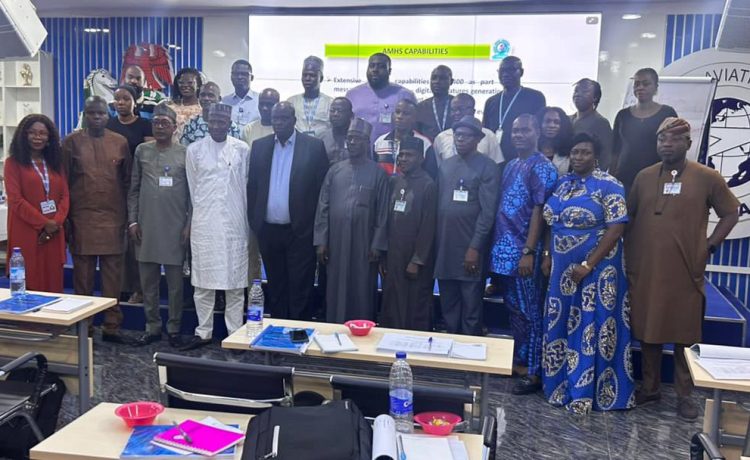The Nigerian Airspace Management Agency (NAMA) has expanded its Advanced Satellite System Aeronautical Fixed Telecommunications Network (AFTN) from 14 to 26 airports nationwide, marking a significant leap forward in the country’s air traffic communication infrastructure. This extension serves as a critical backup to the soon-to-be-commissioned Aeronautical Message Handling System (AMHS) and demonstrates Nigeria’s commitment to global aviation standards.
AFTN: Laying the Groundwork for AMHS
The AFTN upgrade, which operates using X.25 protocols, is specifically designed to ensure redundancy in message delivery for vital aviation communication. It complements the AMHS, which runs on modern X.400 and X.500 protocols, as part of Nigeria’s planned migration to the global Air Traffic Services Message Handling System (ATSMHS).
“This upgrade strengthens the safety, reliability, and resilience of our communication network,” said Engr. Farouk Umar, Managing Director/CEO of NAMA.
Why This Matters for Aviation Safety
By expanding AFTN connectivity to 26 airports, NAMA ensures seamless transmission of flight plans, NOTAMs (Notice to Airmen), weather updates, and other essential aeronautical messages — even during primary system downtimes. Controllers, pilots, and ground staff across Nigeria now have access to a robust backup system that improves operational efficiency and flight safety.
“Our goal is to ensure that no matter the circumstance, air traffic communication remains uninterrupted,” Umar emphasized.
Readiness for AMHS & AIS Automation
The AFTN expansion comes just ahead of the much-anticipated Aeronautical Information Services (AIS) Automation Project commissioning — another major component of NAMA’s digital transformation.
These initiatives collectively push Nigeria’s aviation infrastructure toward compliance with International Civil Aviation Organization (ICAO) standards and global best practices. Engr. Farouk Umar’s leadership has been widely praised for prioritizing innovation, safety, and modernization.
“This milestone reinforces Nigeria’s position as a regional aviation leader,” said one industry observer. “Farouk Umar is not only upgrading systems — he’s redefining airspace management in West Africa.”







